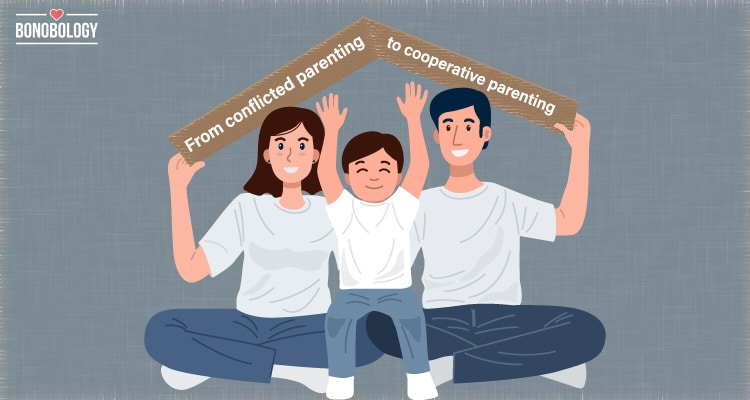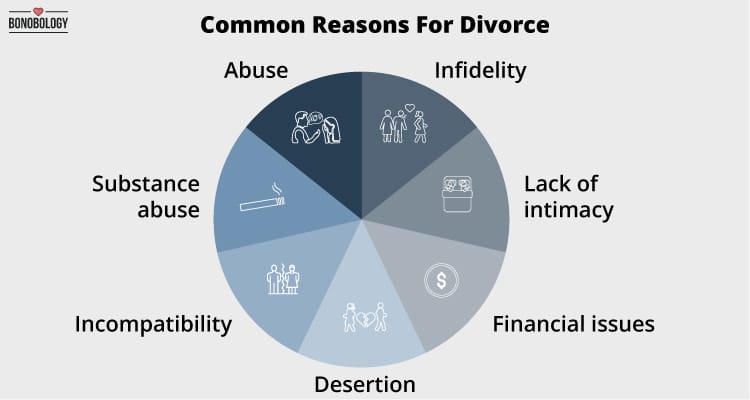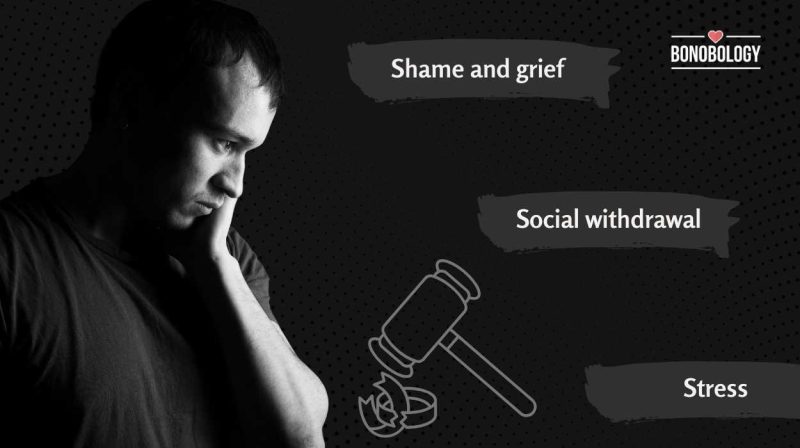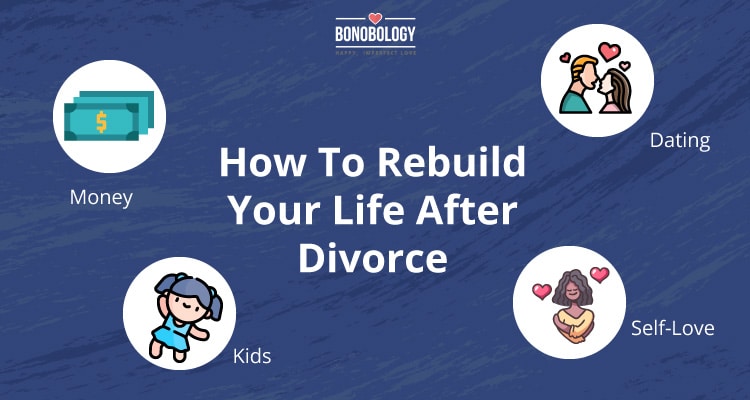Love is a gamble. Sometimes you win, sometimes you lose. Not all relationships are destined to work till the end of the time. A lot of adjustment, patience and communication are required to make a relationship like marriage work. This is why, in the last few years, India has witnessed a steep rise in separation and divorce rates. It’s important to be aware of what comes after the breakdown of the marriage. What are the alimony laws in India? What is alimony based on? What are the divorce alimony rules in India according to which a stipulated amount of money is fixed? Is there any punishment for not paying alimony in India? How long does a man have to pay for alimony? What are the laws concerning Streedhan?
Here is a handy divorce and alimony guidebook to help you navigate through all these questions!
Alimony Laws In India Explained
Table of Contents
People usually have a very fuzzy idea of divorce and alimony laws in India. They often take the plunge into a divorce and once in the middle of it all they realize the wall around them is crumbling because of their lack of knowledge of the divorce and alimony laws in India. So it is very pertinent to have a basic knowledge of the alimony laws in India before taking the plunge into the divorce proceedings. We have all the answers to your questions.
1. What is alimony and how is it different from maintenance?
Alimony is the allowance paid by one spouse to another for their everyday livelihood. In India, the term alimony and maintenance is used interchangeably since they mean the same.

But, before the divorce proceedings come to an end, a spouse pays ‘maintenance’ to another. While after the divorce, either term can be put to use.
Alimony and maintenance both refers to the existence of duty that one spouse owes to another; the amount of money needed to be paid to the dependent partner, to fulfill their needs.
Maintenance is of two kinds:
Interim maintenance: This includes the maintenance paid by the husband, during the subsistence of the legal proceedings, along with the expenses of such proceedings. Interim maintenance has to be paid from the date the suit has been filed until the passing of the final judgement.
Permanent maintenance: The provision for permanent maintenance or alimony is provided within every community and personal religious laws. So, when a decree of divorce or judicial separation has been passed by the law of the court in favour of the wife, a husband is then directed to pay a stipulated amount fixed by the court, to his wife. It can be paid either in fixed periods or in a lump-sum.
Usually, the court prefers to order the periodical payment of alimony or maintenance by the husband to his wife. A lump-sum payment is only made in scenarios where the divorce has been made with the mutual agreement or when such one-time payment is asked for by the parties.
Related Reading: Is Divorce By Mutual Consent A More Dignified Way Of Parting Ways?
2. When is alimony paid?
Alimony in India is paid in different scenarios. Usually it is the husband who pays the wife alimony but it could be contrary too. We will discuss that as well.
1. When a woman is earning
Despite, her working status, what’s taken under consideration is the substantial difference in the net worth between the spouses. She will receive alimony to be able to have the same living standards as that of her husband.
2. If the woman is not working
In such a circumstance, a woman’s educational qualification, her age and her ability to work and earn for herself are taken note of, before deciding the amount of alimony.
3. When a husband is disabled
In the case where the husband is physically disabled and cannot earn for his sustenance, he is granted alimony if his wife is an earning member.
Now, child support is not included in alimony. A child’s maintenance is to be paid for separately by the parents. If a mother is earning, she would have to provide for the child as well, according to her earnings.
3. What is alimony based on?

In case of a divorce with mutual consent, the payment of maintenance and alimony by either spouse is decided by both the parties themselves. But in an instance where it is contested in the court of law, the court makes a decision, taking into consideration all the factors relevant to the case at hand.
The factors that influence the judgment order of the court in the context of alimony or maintenance are:
Proper assessment of the property, income and the individual parties’ ability to earn for themselves would be made. Full disclosure of income and property and other important details is needed to be made by both the husband and wife. Any alleged omission can be enquired about.
Lifestyle is a huge consideration. Emphasis is given to the prior lifestyle of the wife before the marriage inevitably broke down. Besides that, the status, age, health, responsibilities and liabilities are also taken notice of. The court tries to help a woman maintain her lifestyle similar to that of her husband’s. The alimony must be sufficient to maintain the dignity of the woman even after she lives separately from her husband.
If a child is born to the couple during the duration of their marriage, such a minor child and his/her necessities are also to be taken care of.
4. How much amount is to be paid?
Alimony can be either paid as a monthly payout or a one-time settlement.
In case of a monthly payout, the amount of alimony is capped at 25% of the husband’s gross salary. The alimony amount can be raised and lowered as well, depending upon the change in the husband’s salary.
If it is a lump sum payment, there is no benchmark set per se. The alimony can range from one-fifth to one-third of the husband’s net worth and is usually paid in one installment.
5. What is the taxability on the alimony amount?
In case the alimony is paid monthly, it’ll be treated as a revenue receipt. Then, the tax is deductible at the hands of the receiver and not the payer. It’s added to the total income of the receiver and is taxed as per the current tax brackets.

A lump-sum payment is tax-free. It’s treated as a capital receipt and is hence not eligible for tax deductibles.
6. Under what circumstances, alimony is not needed to be paid?
There are certain situations, under which a spouse is not required to pay alimony or maintenance for their ex-partner’s survival.
If a wife remarries, a husband is under no obligation to continue paying her alimony.
If a wife is employed and earns well to maintain the similar lifestyle she had while she was married, then a husband can contest and/or refuse to pay for the maintenance or alimony on such a ground. Even in such a case, maintenance for children has to be still paid.
7. How can a woman protect herself from such unforeseen and unfortunate circumstances?
One of the most important things is to be vigilant enough.
Know all the important details such as the husband’s earnings, educational qualification, bank account details and property under his name. All such information is necessary while contesting for maintenance and/or alimony. Even if a wife is not accurate about her husband’s present salary, knowing the past job posts he held and his educational qualifications is enough to make a strong statement regarding his capacity to earn and maintain a particular standard of lifestyle. It’ll help the court in deciding the correct amount of alimony or maintenance that a woman deserves to receive.
Even if the family court’s decision is unsatisfactory, one can knock the doors of the high court of their respective state to make a prudent and revised decision or order regarding the issue.
8. What is Streedhan?
The concept of Streedhan varies from the concept of alimony or maintenance.
Streedhan is a woman’s property that she receives either before, after or during her marriage. It differs from ‘dowry’ since there is no coercion involved in Streedhan.
A woman has an unchallengeable right over her Streedhan. She has an absolute claim over it even after her separation or divorce from her husband.

What belongs to a woman in Streedhan
a. All kinds of jewellery – gold, silver, platinum, precious stones, etc.
b. Any valuable property like any vehicle, paintings, electronic appliances, furniture, etc. given during her marriage or given right before or after her wedding ceremony.
c. Gifts are given to her by any person – parents, husband, in-laws, friends, relatives, acquaintances, etc.
d. A woman’s individual earnings from any employment or business she’s involved in, before or after the marriage. If she has invested or saving with her earnings, that will be included in her personal earning.
What doesn’t belong to a woman in her Streedhan
a. Any invaluable gift or ornament that was given to the husband by the wife’s parents or family during the wedding ceremony or throughout the marriage.
b. Any asset – movable or immovable– bought by the husband under his wife’s name and not intended to be passed on as a gift.
c. A woman’s earnings that she willingly spent for the betterment of her household cannot be claimed as her Streedhan.
Through this article, you will get a good idea of the alimony laws in India and the concept of Streedhan. Women in most cases are not that financially aware and end up getting a raw deal most of the time. They could be working all their life but at the end of it, they have no savings or investments of their own. So it’s good to be aware of the laws and what steps you can take to fortify yourself against a raw deal.
Your contribution does not constitute a charitable donation. It will allow Bonobology to continue bringing you new and up-to-date information in our pursuit of helping anyone in the world to learn how to do anything.






















Featured
The Hidden Benefits Of Divorce
Top Legal Tactics for Alimony Disputes Between Parents
Divorce Regret: What Is It, Signs, And Ways To Deal
The Pros And Cons Of Being Your Own Divorce Lawyer
15 Subtle Yet Strong Signs Your Marriage Will End In Divorce
10 Things To Do When You Are Thinking About Divorce
10 Tips For Divorced Parents To Handle Joint Custody Effectively
9 Sneaky Divorce Tactics And Ways To Combat Them
15 Most Common Reasons For Divorce
How To Cope With Divorce As A Man? EXPERT ANSWERS
11 Ways To Remain Sane During a Divorce
7 Important Things To Know About Dating While Separated
The Top Rules Of Separation In Marriage To Make It Successful
Lonely After Divorce: Why Men Find It So Hard To Cope
How To Rebuild Life After Divorce: Handling Kids, Money, Dating, And Self-Love
Failed Celebrity Marriages: Why Are Celebrity Divorces So Common And Expensive?
Surviving Divorce at 50: How To Rebuild Your Life
Gray Divorce 101 – A Guide To Divorce After A Long Marriage
Expert Advice – When To Call It Quits In A Marriage
8 Examples Of Unhealthy Boundaries With Ex-Wife